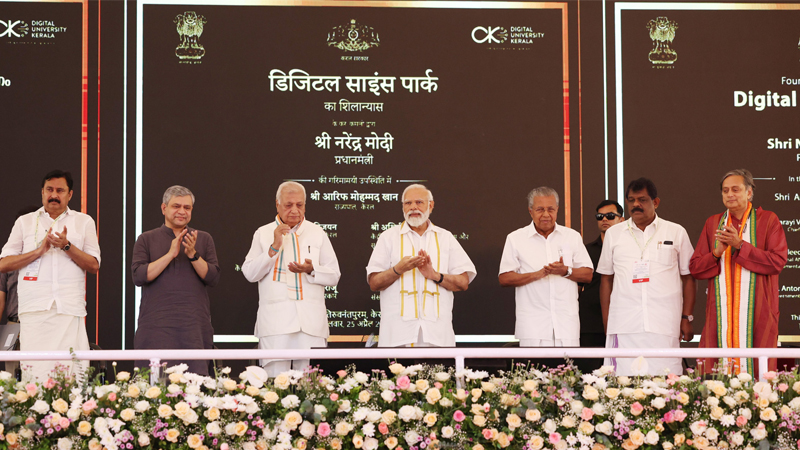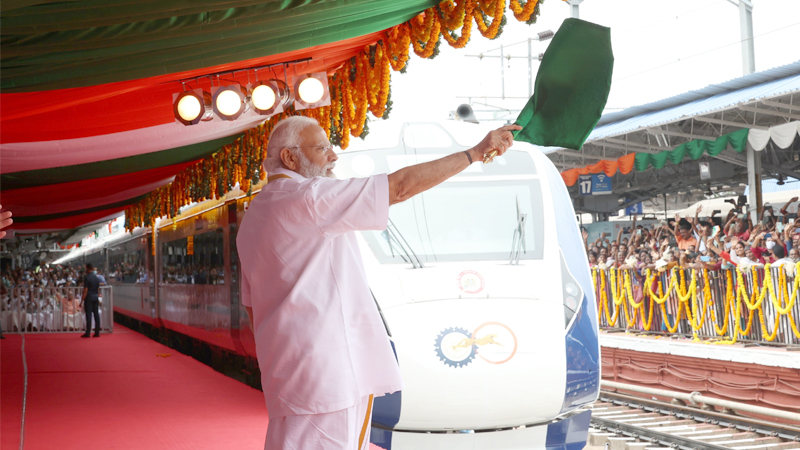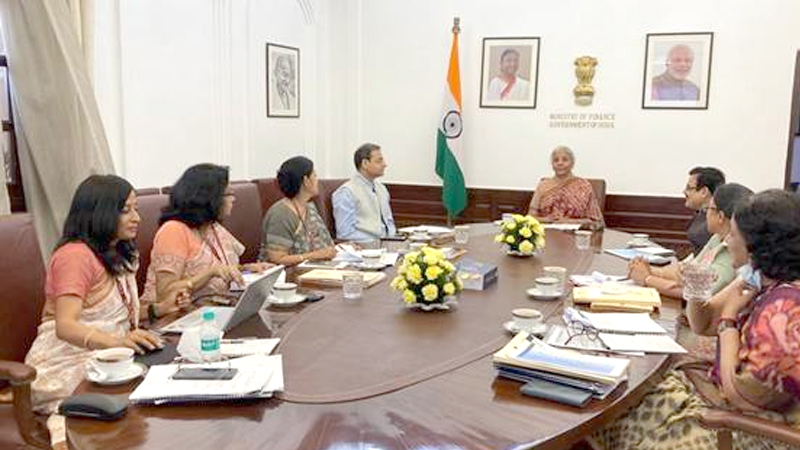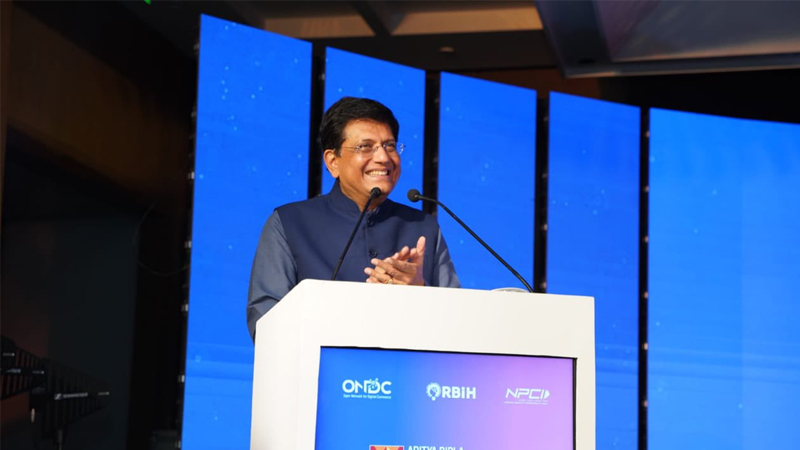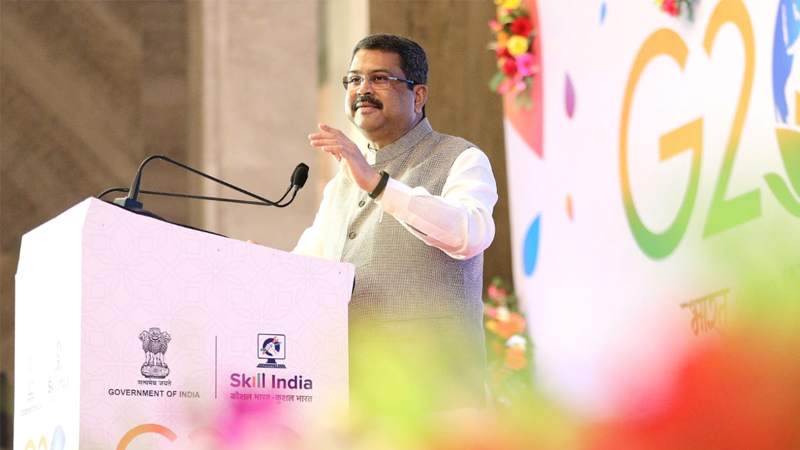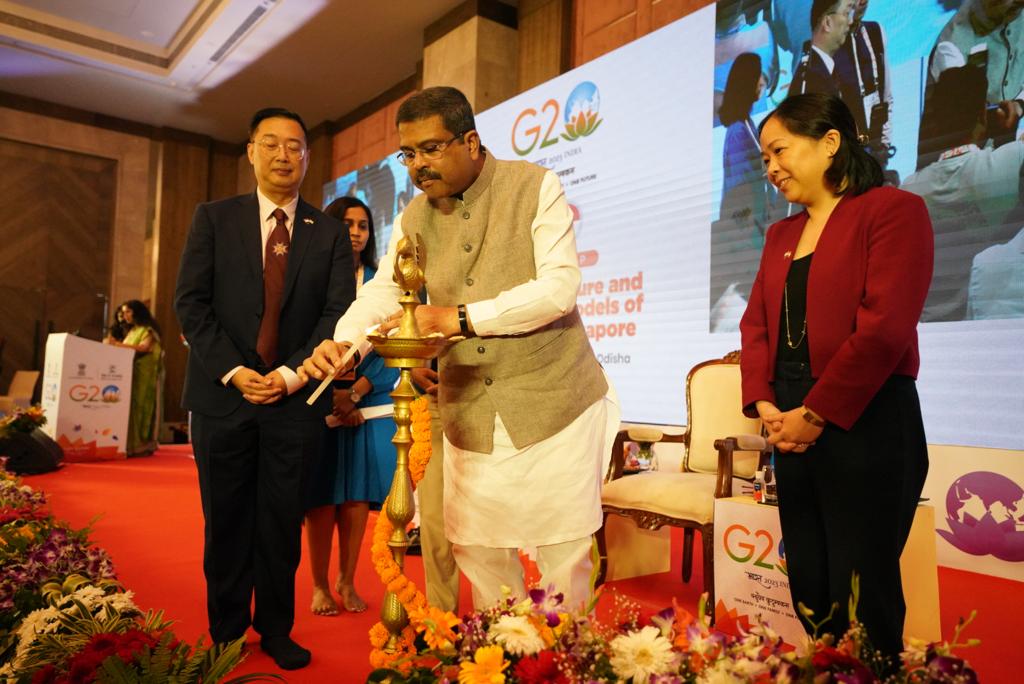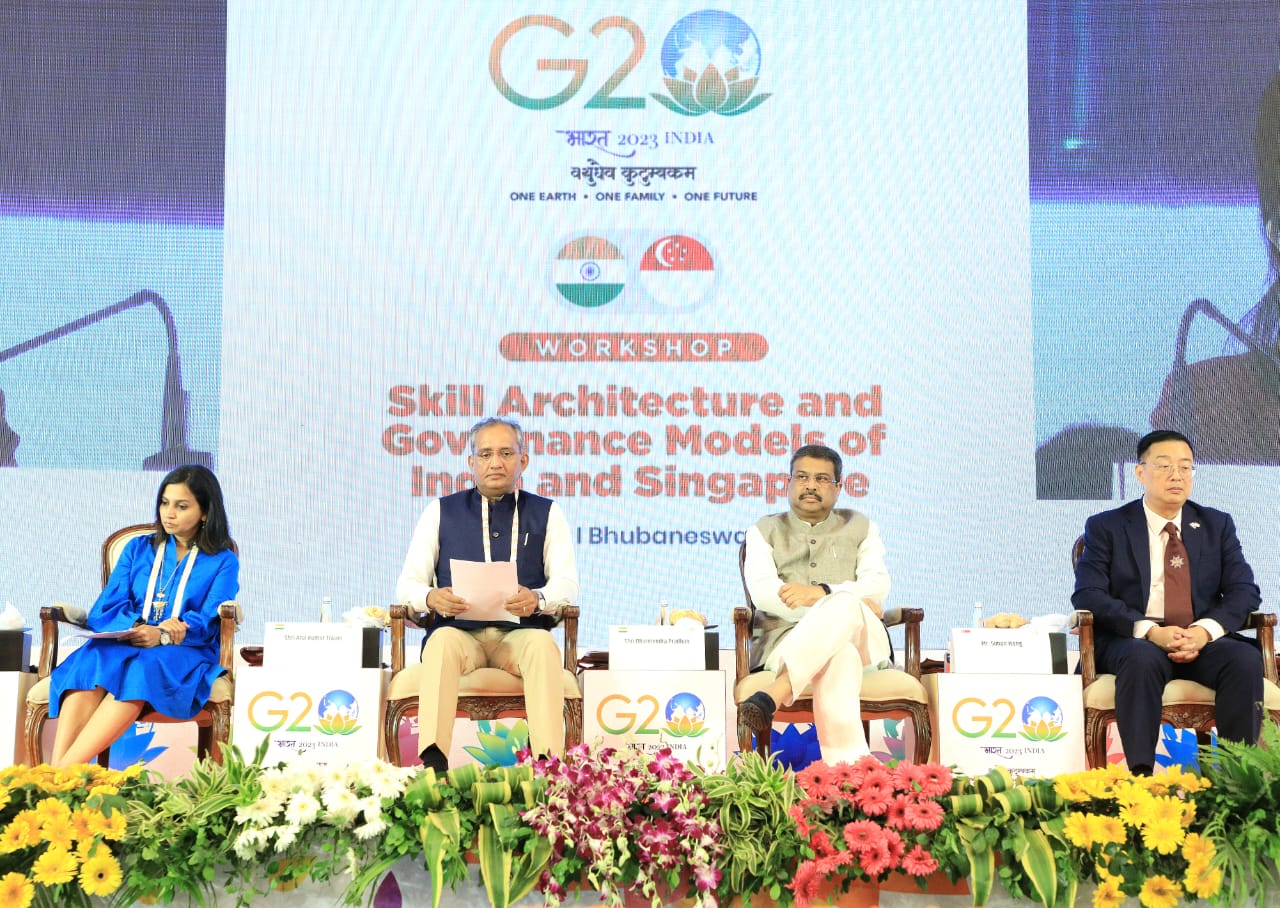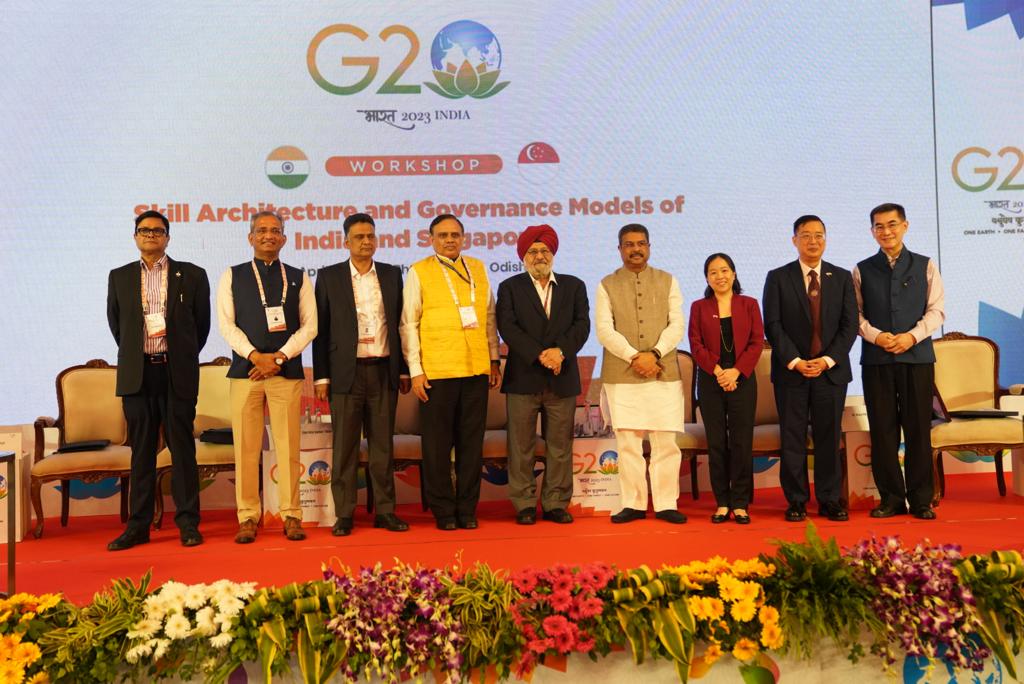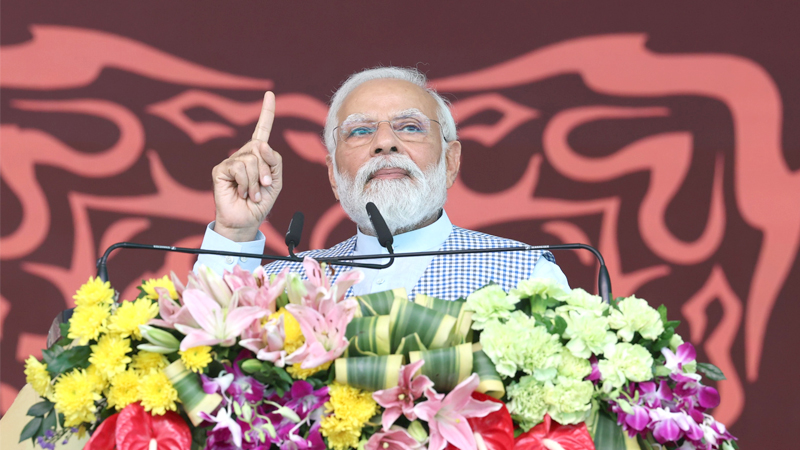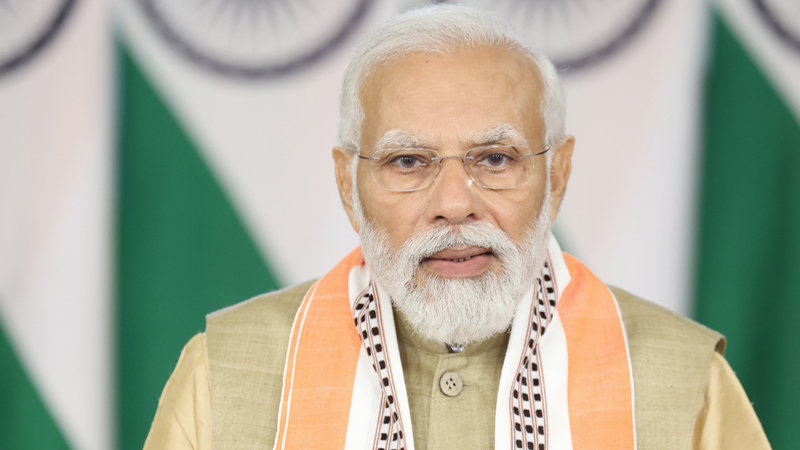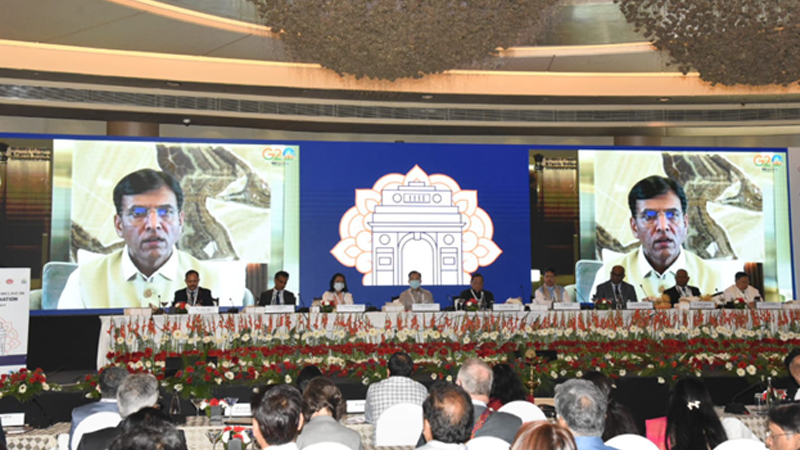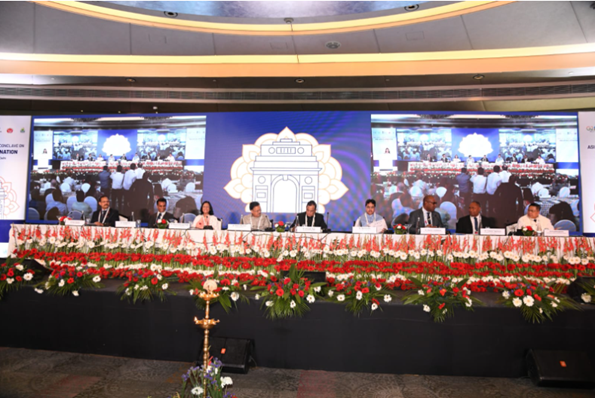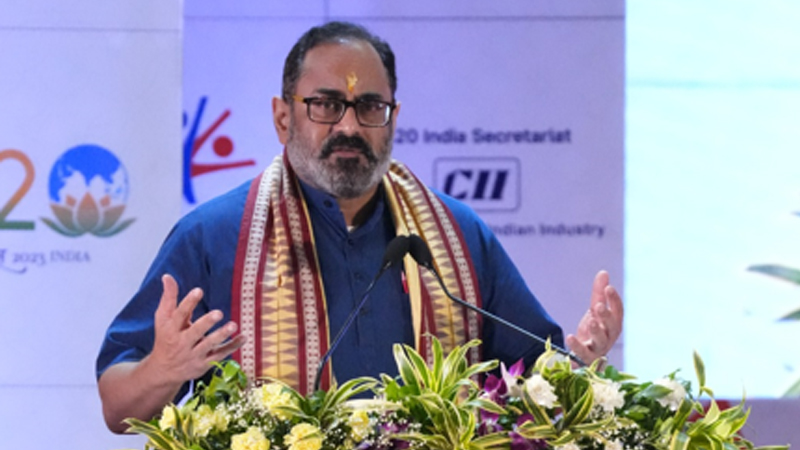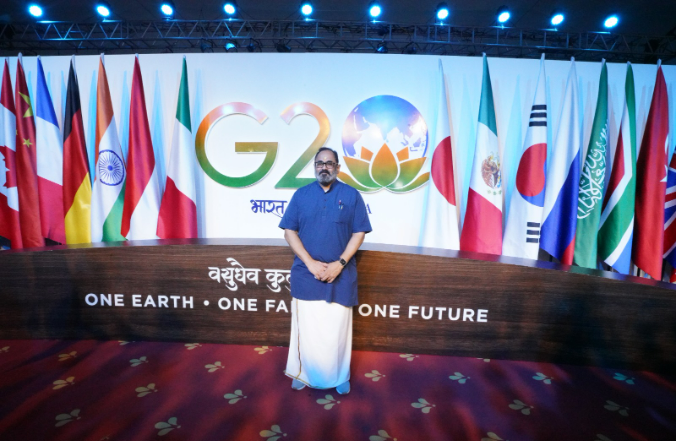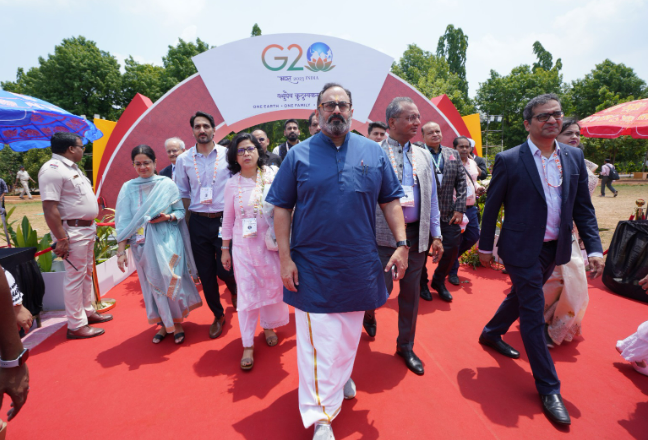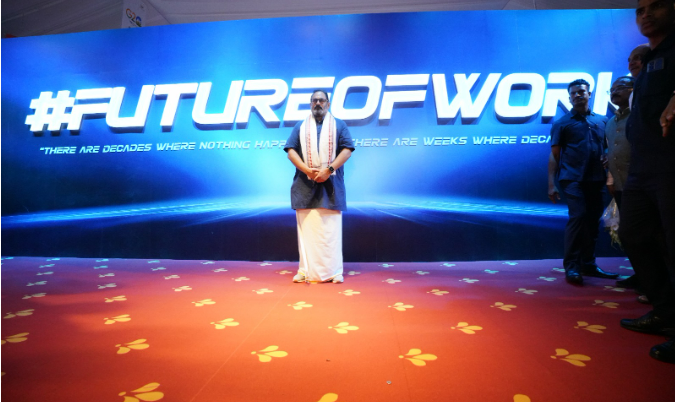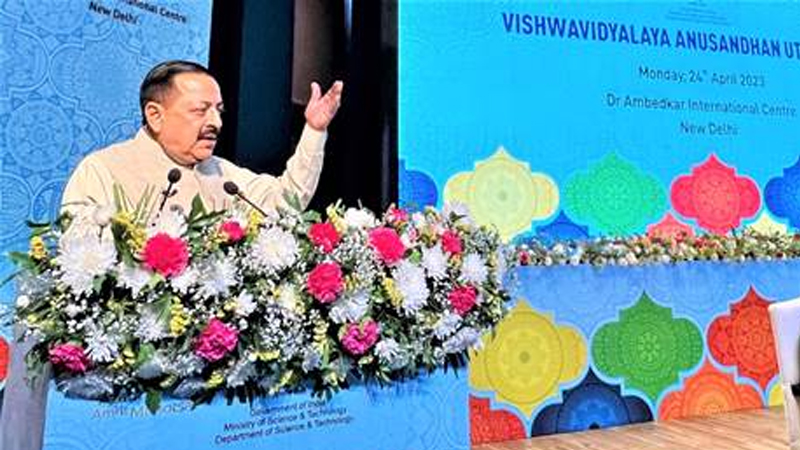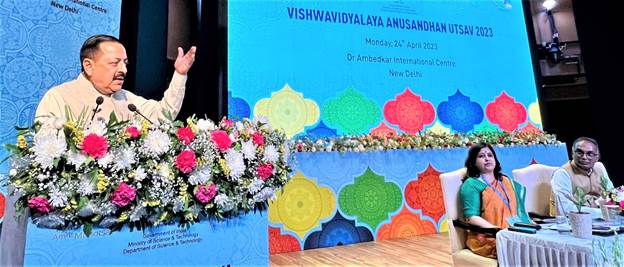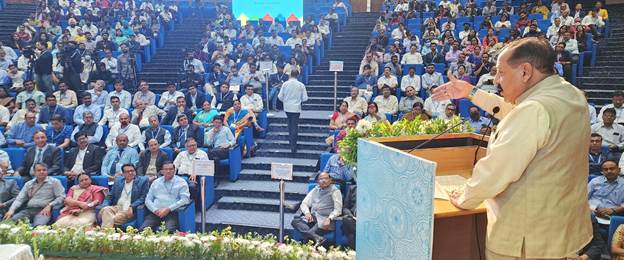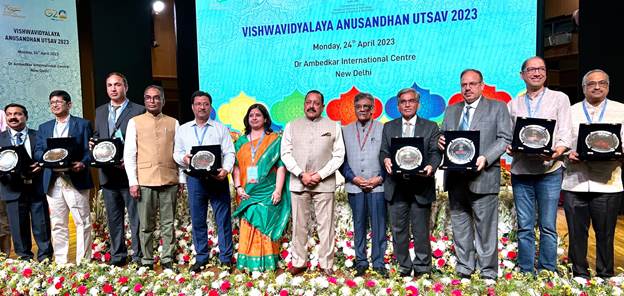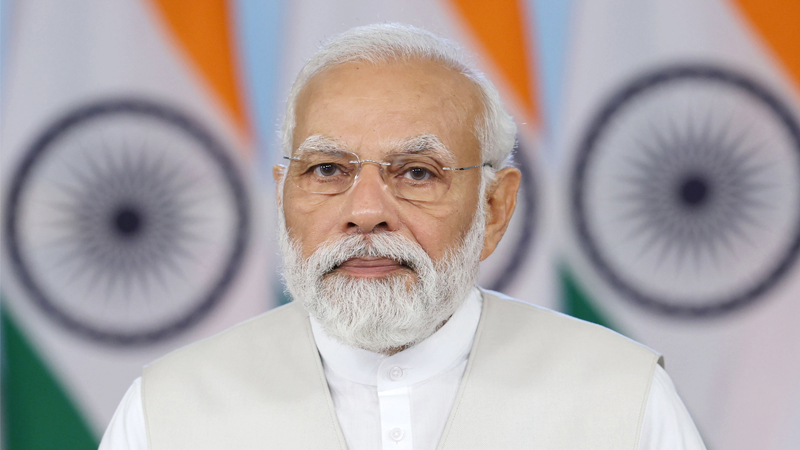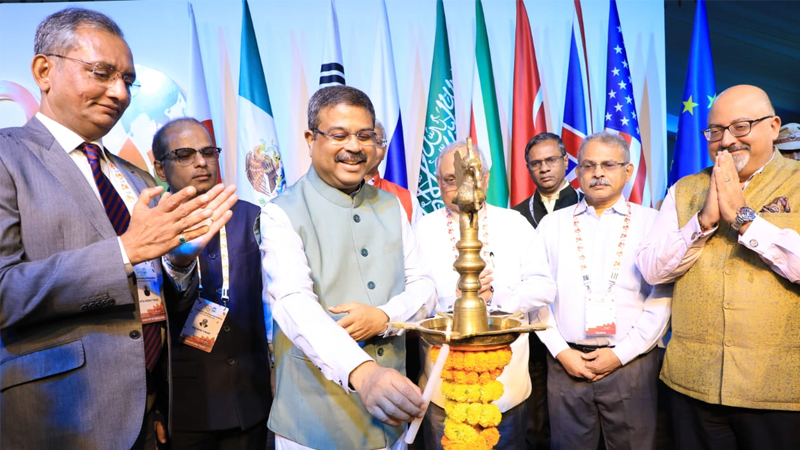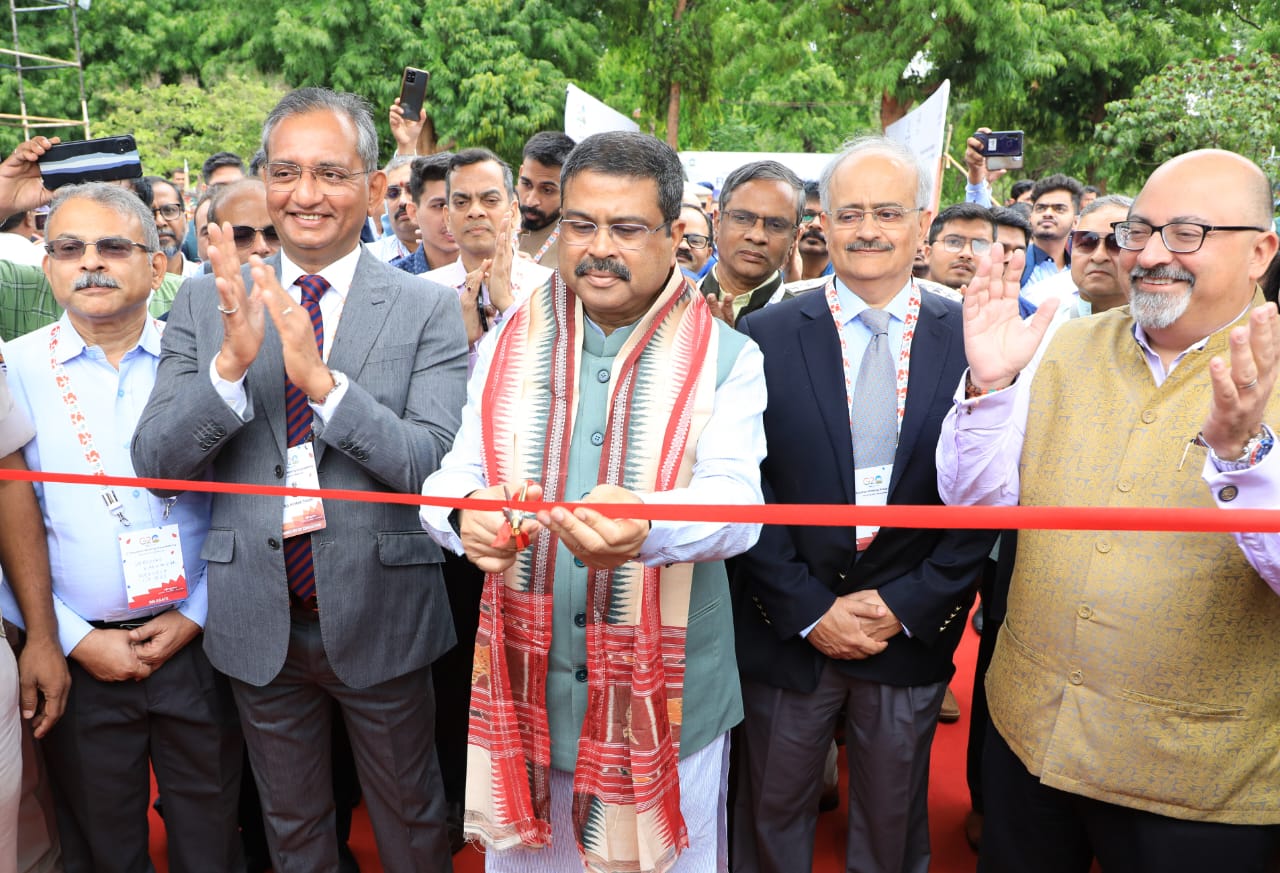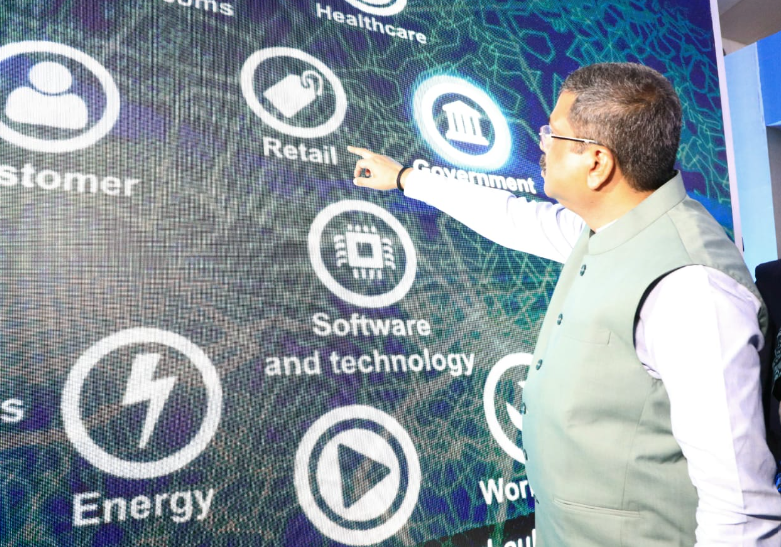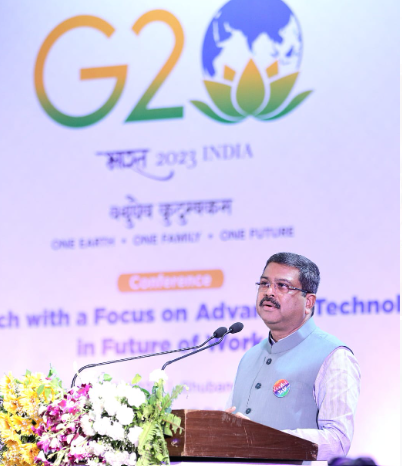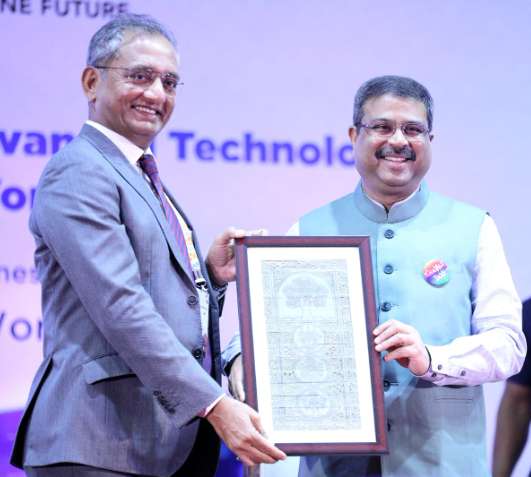The Prime Minister, Shri Narendra Modi laid the foundation stone and dedicated to the nation various development projects worth more than Rs 3200 crores at Central Stadium in Thiruvananthapuram, Kerala today. The projects include the dedication of the Kochi Water Metro to the nation, laying the foundation stone of various rail projects and the Digital Science Park in Thiruvananthapuram. Earlier in the day, the Prime Minister flagged off Kerala’s first Vande Bharat Express between Thiruvananthapuram and Kasargod.
Addressing the gathering, the Prime Minister greeted the people for Vishu. Referring to the projects of today, the Prime Minister underlined that various projects related to the development and connectivity of Kerala have been unveiled today including the state’s first Vande Bharat Express, Kochi’s first Water Metro and several Railway developments. He congratulated the citizens of Kerala for these development projects.
Commenting on the education and awareness level of Kerala, the Prime Minister said that the hard work and politeness of the people of Kerala give them a unique identity. He said the people of Kerala are capable of understanding the global scenario and they can appreciate how India is being considered a vibrant spot of development amidst difficult times and the promise of India’s development is being acknowledged globally.
The Prime Minister credited the trust shown by the world towards India to a decisive government at the center that takes quick and firm decisions for the welfare of the country, the unprecedented investment made in strengthening and modernizing the infrastructure of India, investments made towards enhancing the skill set of the youth and finally the commitment of the central government towards Ease of Living and Ease of Doing Business. He further added that the government focuses on cooperative federalism and considers the development of states as the development of the country. “We are working with a service-oriented approach. The nation can progress at a faster rate only if Kerala progresses”, the Prime Minister remarked.
The Prime Minister said one of the reasons for the growing stature of the country is due to the outreach efforts of the central government which has benefited the Keralites who live abroad. India’s growing might is helping the Indian Diaspora greatly, he said.
The Prime Minister said that in the last 9 years, work on connectivity infrastructure has been undertaken at an unprecedented speed and scale. He informed that in this year’s budget also, it is proposed to spend more than 10 lakh crore on infrastructure. “The public transport and logistics sector is being completely transformed in the country. We are moving towards the golden age of Indian railways”, he said and remarked that the average rail budget before 2014 has increased fivefold now.
Throwing light on the developments in railways carried out in Kerala in the last 9 years, the Prime Minister mentioned the work done with respect to gauge conversion, doubling, and electrification of railway tracks. He mentioned that work for the redevelopment of three major railway stations in Kerala has been initiated today with a vision to make it a multimodal transport hub. “Vande Bharat Express is the identity of aspirational India”, the Prime Minister said as he highlighted the transforming rail network in India which makes it possible to run such semi-high speed trains with ease.
The Prime Minister said that all the Vande Bharat trains, so far. are connecting places of cultural, spiritual and tourism importance. “Kerala’s first Vande Bharat train will link North Kerala with South Kerala. The train will ease travel to places of pilgrimage like Kollam, Kottayam, Ernakulam, Thrissur and Kannur”, he said. He also talked about the environmental benefits of the modern train. The Prime Minister informed that work has been initiated today to prepare the Thiruvananthapuram-Shoranur section for semi-high speed trains. Upon completion, the Prime Minister continued, it will become possible to run semi-high speed trains from Thiruvananthapuram to Mangluru.
The Prime Minister elaborated that the effort is to provide Made in India solutions as per local needs with regard to infrastructure. He listed solutions like a semi-hybrid train, Regional Rapid Transport System, Ro-Ro ferry, and ropeway to illustrate situation-specific solutions for connectivity. He also underscored the indigenous origins of Made in India Vande Bharat and Metro coaches. He also mentioned projects like Metro-Lite and urban ropeways in smaller cities.
The Prime Minister underlined that the Kochi Water Metro is a Made in India project and congratulated the Kochi Shipyard for the development of ports for the same. He stated that the Kochi Water Metro will make modern and cheap means of transport accessible for the people living in the nearing islets of Kochi while also providing intermodal connectivity between the bus terminal and the metro network. The Prime Minister further added that it will benefit backwater tourism in the state apart from easing the traffic congestion in the city. He expressed confidence that the Kochi Water Metro will become a model for the other states in the country.
Shri Modi reiterated that along with physical connectivity, digital connectivity too is the country’s priority. He said projects like Digital Science Park in Thiruvananthapuram will give a fillip to Digital India. He highlighted global appreciation for India’s digital system. “Indigenously developed 5G will create new opportunities in the sector”, he said.
The Prime Minister pointed out that the investments made towards connectivity not only expand the scope of services but also reduce the distance and connect various cultures without discriminating between caste and creed and the rich and poor. He emphasized that this is the correct model of development which can be witnessed all over India and it strengthens the spirit of ‘Ek Bharat Shreshtha Bharat’.
The Prime Minister emphasized that Kerala has a lot to offer to the country and the world. “Kerala has culture, cuisine and climate which has the source of prosperity inherent in them”, the Prime Minister pointed out. Referring to the recent G20 meet in Kumarakom, the Prime Minister said that such events give Kerala more global exposure.
The Prime Minister mentioned famous Shri Annas (millets) from Kerala such as Ragi Pattu. Shri Modi exhorted everyone to be vocal about the local produce and products. “When our products reach global markets, the path of Viksit Bharat will get stronger”, he said.
Speaking about citizens’ achievements in the Mann Ki Baat Programme, the Prime Minister stated that he frequently mentions the products created by self-help groups of Kerala with the objective of promoting ‘Vocal for Local’. He informed that ‘Mann Ki Baat’ is completing a century of episodes this Sunday and it is dedicated to all the citizens who have made their contributions towards nation development as well as the spirit of ‘Ek Bharat Shrestha Bharat’. The Prime Minister concluded by saying that for building a Viksit Bharat everyone will have to dedicate themselves.
Governor of Kerala, Shri Arif Mohammed Khan, the Chief Minister of Kerala, Shri Pinarayi Vijayan, Union Minister for Railways, Shri Ashwini Vaishnaw, Union Minister of State, Shri V. Muraleedharan, Member of Parliament from Thiruvananthapuram, Dr Shashi Tharoor and Ministers from Government of Kerala were present on the occasion among others.
Background
The Prime Minister laid the foundation stone and dedicated various projects to the nation worth more than Rs. 3200 crores today. The Prime Minister dedicated the Kochi water metro to the nation. This one-of-its-kind project connects 10 islands around Kochi through battery-operated electric hybrid boats for seamless connectivity with Kochi city.
Apart from Kochi Water Metro, rail electrification of the Dindigul-Palani-Palakkad section was also dedicated by the Prime Minister. During the event, the Prime Minister also laid the foundation stone of various rail projects including the redevelopment of Thiruvananthapuram, Kozhikode, and Varkala Sivagiri railway stations; the comprehensive development of Thiruvananthapuram area including Nemon and Kochuveli and increasing of sectional speed of Thiruvananthapuram-Shoranur section.
Apart from this, the Prime Minister also laid the foundation stone of the Digital Science Park in Thiruvananthapuram. Digital Science Park is envisaged as a key research facility to develop digital products and services by industry and business units in collaboration with academia. As a third generation Science Park, the Digital Science Park will house common facilities to support the development of products in the area of Industry 4.0 Technologies like AI, Data Analytics, Cyber Security, Smart Materials etc. The state-of-the-art basic infrastructure will support high-end applied research by industries and the co-development of products in association with the Universities. The initial investment for Phase-1 of the project is around Rs 200 crore while the total project outlay has been estimated at around Rs 1515 crore.


